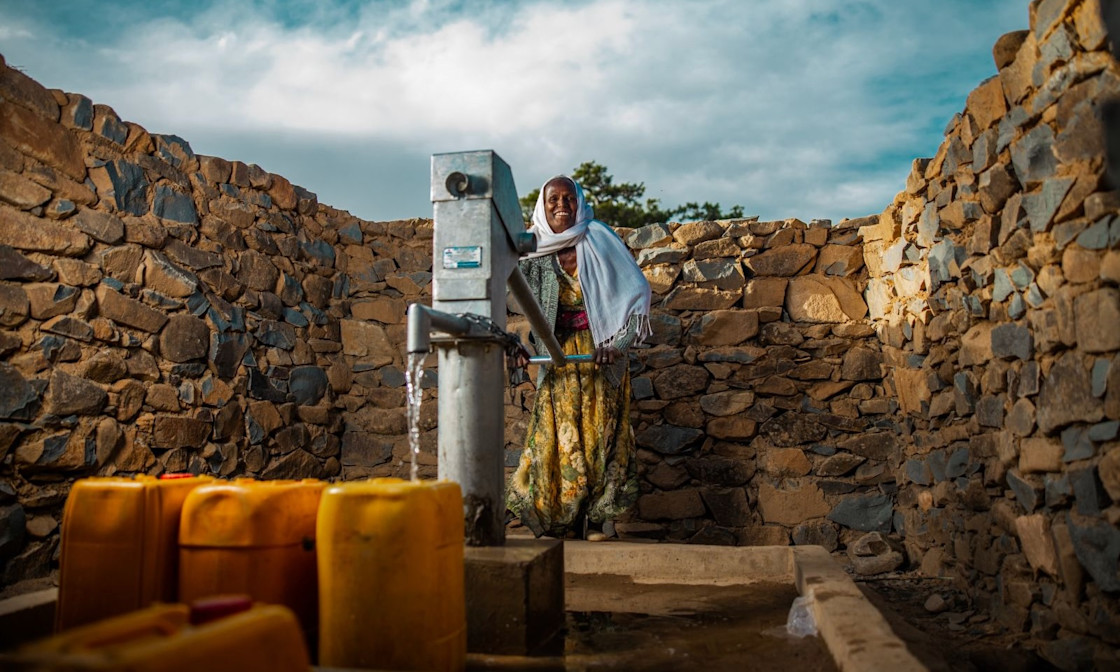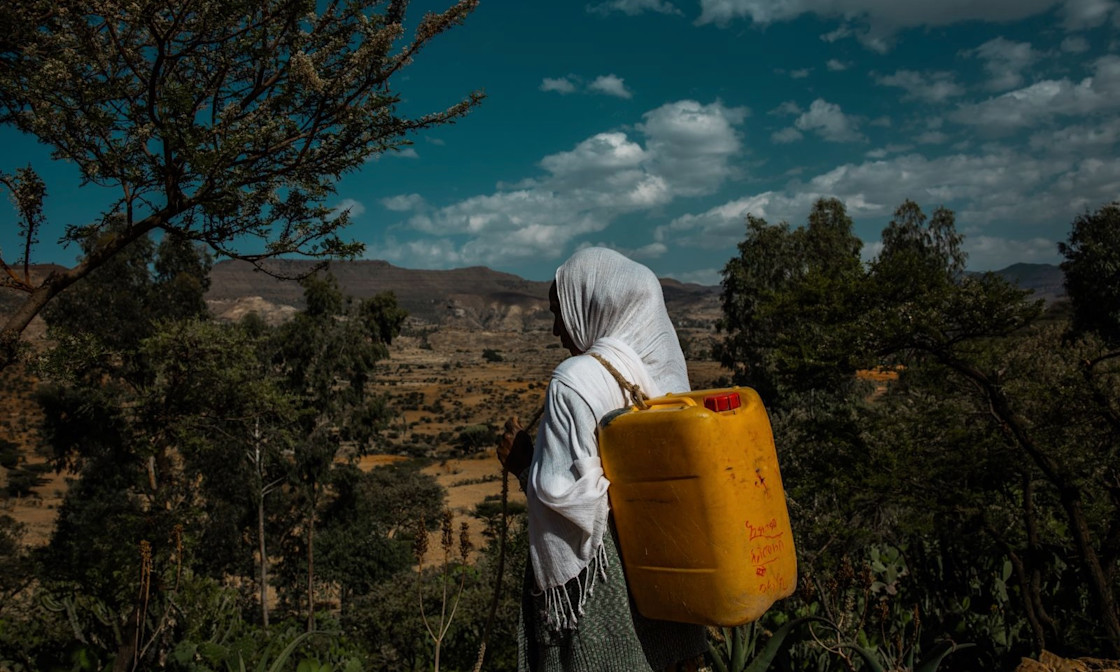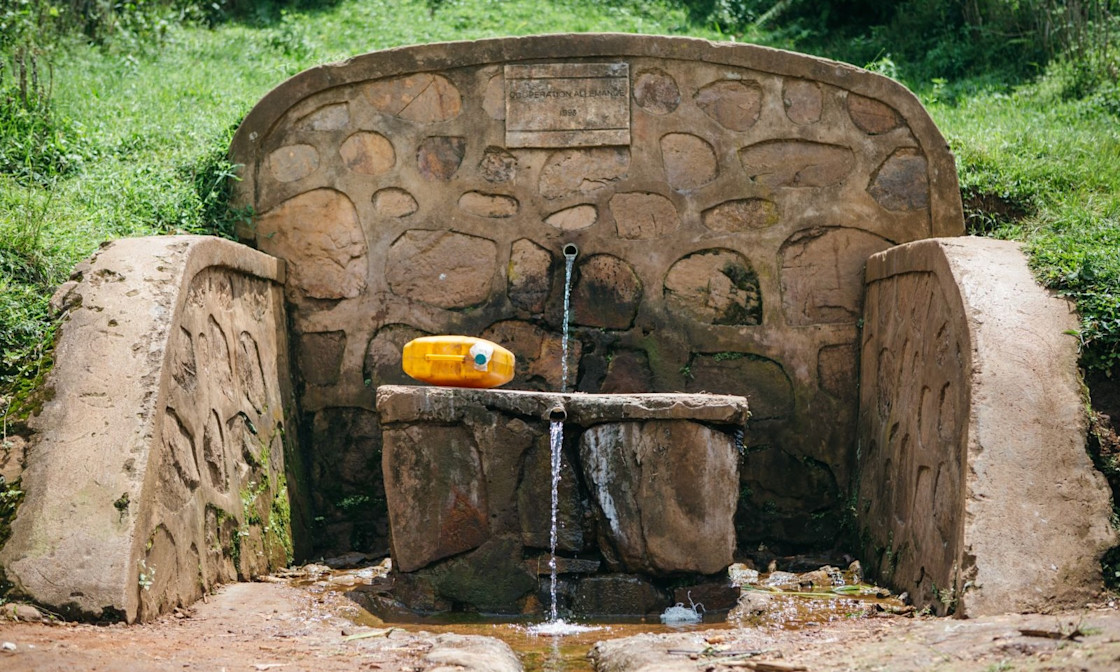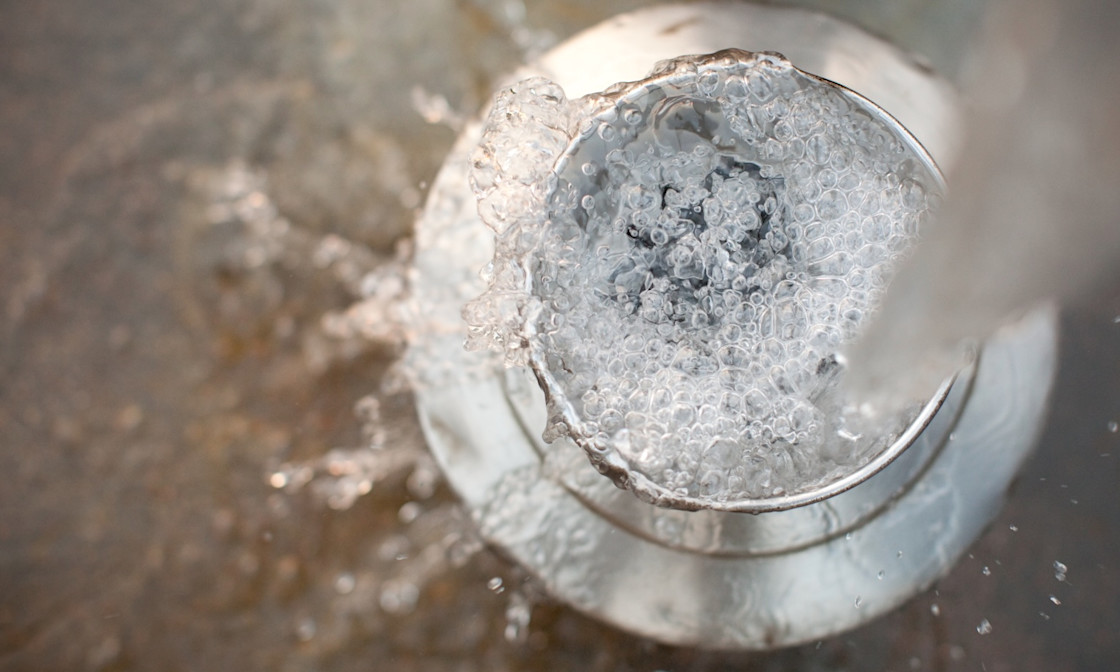Sustainability.
What does it mean to you?
In recent years, the word has been synonymous with environmental stewardship. With being ‘green.’
To us, it’s about that, and much more.
If you consider the literal meaning of the word — the ability to be maintained — it’s all about being durable. Built to last for the long haul.
Most of the communities we serve have spent years — decades, even — hoping and praying for clean water. Some people have been waiting their whole lives. Which means when we — together with supporters like you — bring water to one of these communities, it’s important vital that it continues to flow for years. For generations.
And to do that?
It’s all about choosing well.

First of all, we choose solutions that are appropriate to the environment in which we’re working. Because what works well in the misty mountains of Nepal is not going to be the right solution for sunny Sub-Saharan Africa.
Our partners take existing water sources, terrain, and population into account when choosing a water solution. From household BioSand Filters to piped systems that stretch for miles, we work to make sure we’re funding the most appropriate solution for each community.
And since many of the communities we serve are located in the most vulnerable regions on the planet, we need the water solutions we fund to withstand increasingly severe climate conditions and weather events, from hurricanes to heatwaves.
How do we ensure these solutions are still working after the worst happens?
That one we’re extra proud of: we use our very own sensors.
A few years into charity: water’s existence, we realized we needed to be able monitor our wells from afar. But no tool existed. So we made one.
Our IoT-powered handpump sensor lasts 10 years without a battery change, installs in 10 minutes, is fully tamper-proof and vandal-resistant, and uses the Amazon Web Services cloud computing platform to analyze readings in real time. So we can tell from wherever we are whether the water is still flowing.

Of course, this technology is important.
But like everything we do, it’s really about people.
By far the most important choices we make are the local partners we work with. So we choose them with great care, ensuring they have all the criteria we’re looking for: a community-centered approach, excellent reporting practices, and years of experience implementing effective, sustainable water projects in their area.
And because this story is about sustainability, we want to share some examples of just how much these partners care — not just about the people in the communities they and we serve, but also the natural surroundings and the planet as a whole.
In Kenya, our partners are nursing watersheds back to health.
German aid organization and local partner Welthungerhilfe (WHH) serves the residents of the Makueni region, around 70% of whom are drinking dirty water. The hills are made up of young volcanoes, so the rich soil is ideal for farming and features relatively healthy water catchments. (Catchments are areas where rain or spring water naturally flows, like streams, rivers, or lakes.) However, a lack of forest cover has threatened the water quantity of aquifers, raising concerns about the long-term availability of groundwater throughout the region.
In 2021, WHH faced this problem head-on with its goal to plant 10,000 trees and establish 10 tree nurseries (primarily around family farms and communal sites like schools). They’ve mobilized the local community to engage in mass tree-planting events, successfully supporting watershed health around waterpoints.

In Ethiopia, small beginnings support big goals.
The International Rescue Committee (IRC) has served in southeastern Ethiopia since 2000. Their efforts primarily focus on improving access to clean water from natural springs, and they’re consistently innovating to adapt their response to increases in human contamination and adverse weather.
IRC Ethiopia encourages communities to plant trees to help protect and purify water catchments. They recently realized that seedlings (young tree sprouts) could further support these efforts by revegetating catchments that have lost plant cover. They’ve therefore begun collaborating with the regional government to distribute more than 24,000 tree seedlings. They plan to give at least 100 tree seedlings to each of their 148 water projects. Their work is helping improve water quantity and quality for rural communities, while simultaneously furthering the country’s reforestation goals.

In Rwanda, the work is rooted in sustainability.
Water For People (WFP) has plenty to be proud of. In 2020, they celebrated helping provide water coverage to the entire District of Rulindo—a milestone ten years in the making! But they also have bold plans for the next ten years, and adequate tree coverage is essential to water security in Rwanda. To combat the effects of deforestation in their region, WFP is being forward-thinking and creating detailed Water Resource Management Plans for the conservation and protection of water resources.

In Nepal, community collaboration creates a greener future.
Nepal is rich in beauty and natural resources. The country is overflowing with rivers, but few are easily accessible to rural communities. The dangerous mountain terrain makes travel difficult, and limited access to electricity necessitates innovative solutions. Local partner HELVETAS utilizes gravity-fed and solar-powered piped systems to bring spring water to schools and homes in the remote Karnali Province. But renewable energy is just the beginning. They’re also implementing Integrated Water Resources Management (IWRM) Programs. They’re empowering communities to consider and plan for their holistic water needs—from sanitation in schools to irrigation of their crops—so that water continues to flow for years. This allows them to focus on the sustainable development of water resources in the future.

Seeds of change are taking root.
We’re incredibly proud of our local partners’ efforts to invest in the long-term environmental health of rural communities. And when you give to charity: water, you’re empowering their efforts.
We’ve seen thousands of our supporters around the world sacrifice and strategize for clean water. Our friend and Tiny Hero, Josiah, even started his own recycling business! (Yeah, it feels pretty cool to know a 10-year-old entrepreneur.) But anyone, anywhere, can make a difference.
You can choose well too.
Creating a greener, cleaner planet is all about making smart choices, big and small. That goes for organizations like ours, and for people like you.
Maybe you decide to turn off the faucet while brushing your teeth, or turn off the lights when you leave the room. Perhaps one day you can walk or bike to work instead of driving. But whatever you do to help leave the planet better than we found it, thank you. In doing so, you’re taking a small step toward sustainability—and in the process, supporting our local partners around the world.

Photos by Jeremy Snell and Cubby Graham
